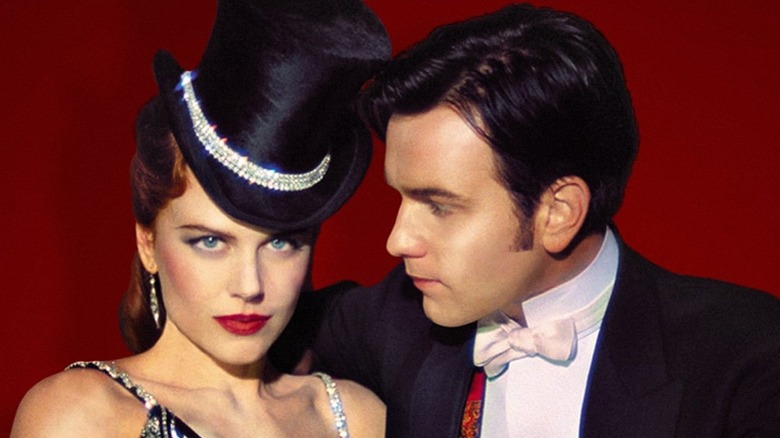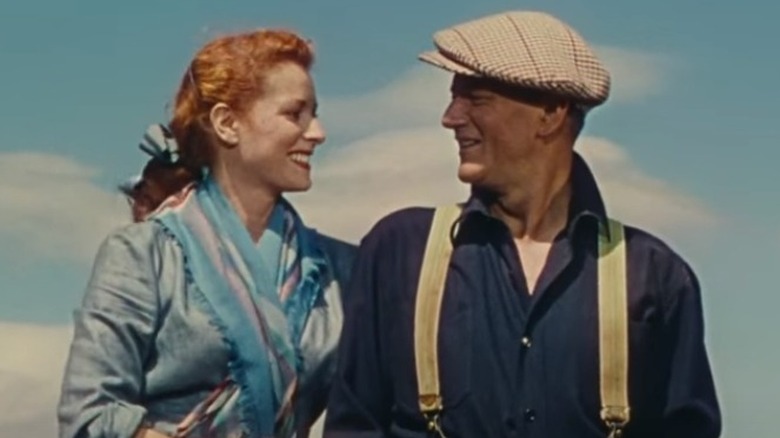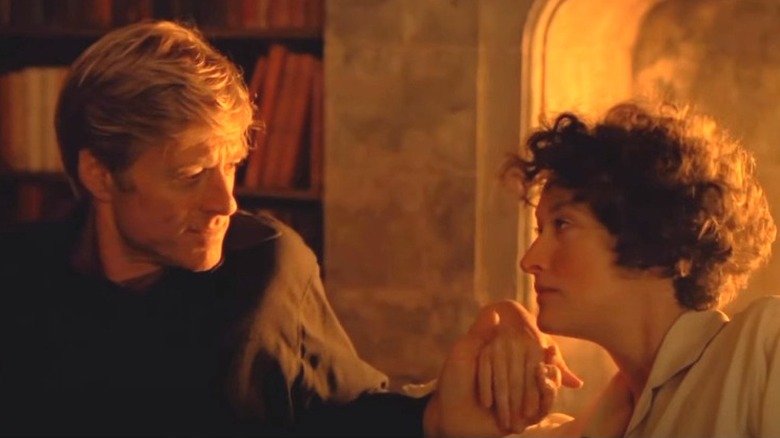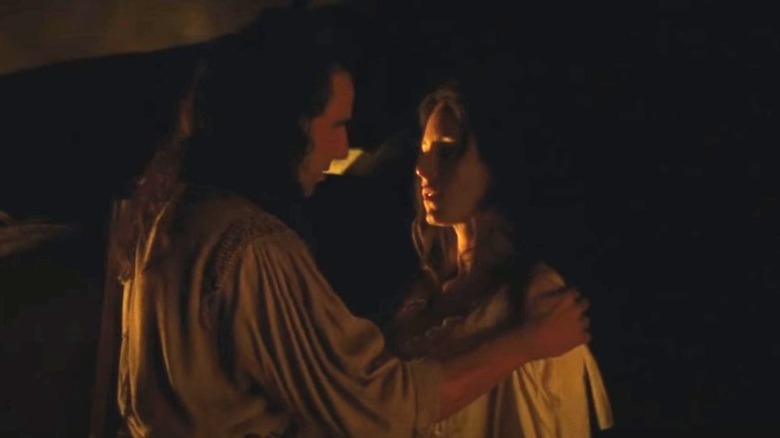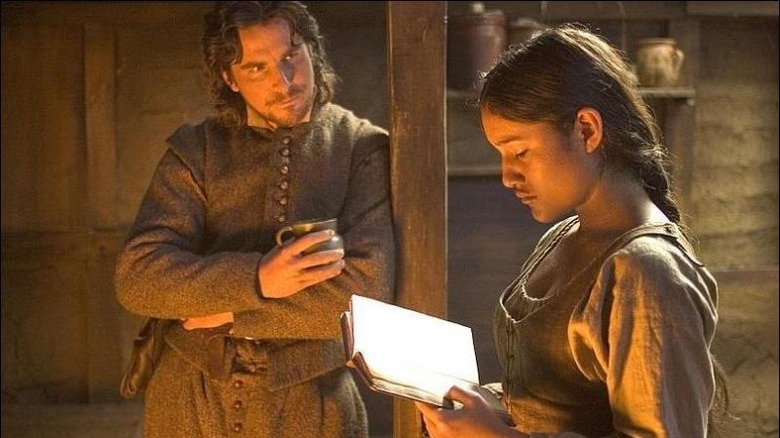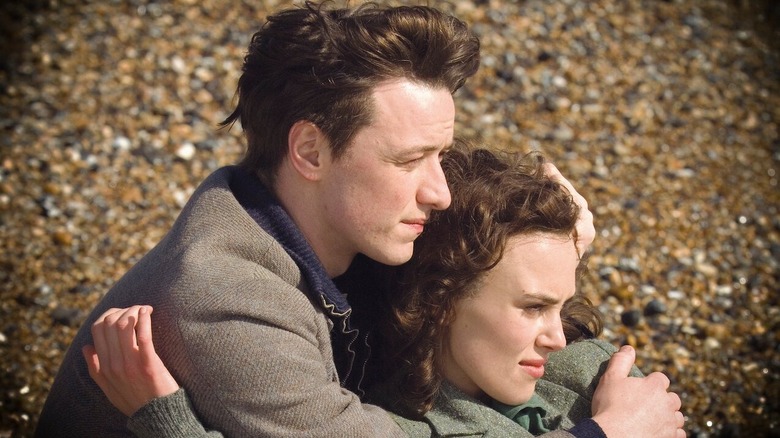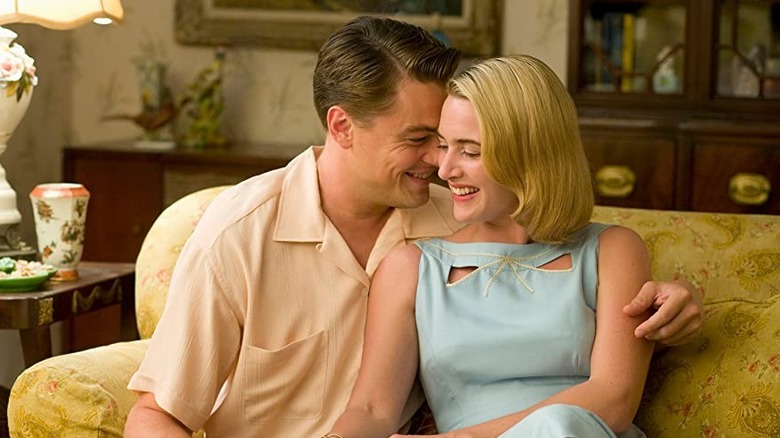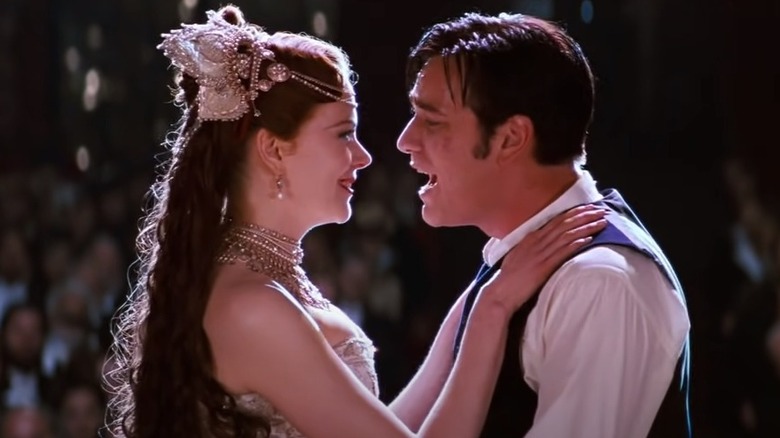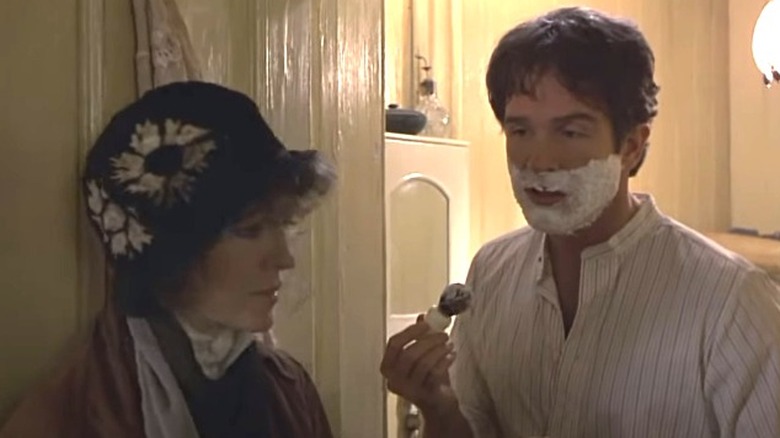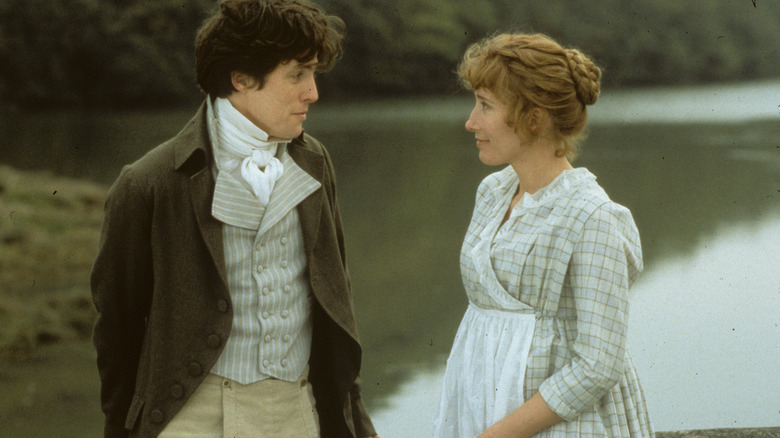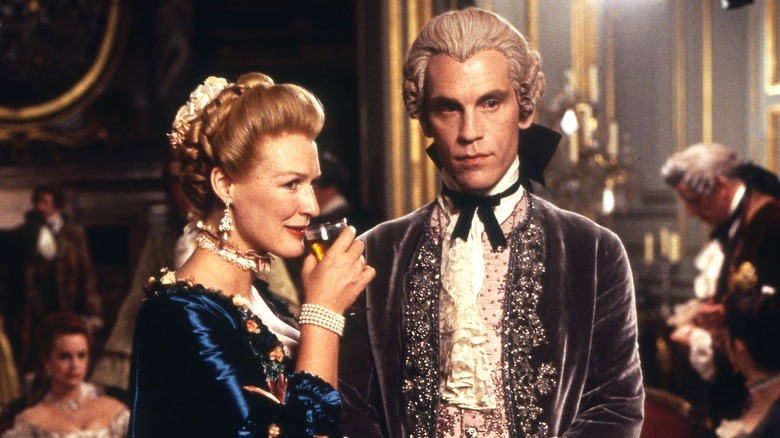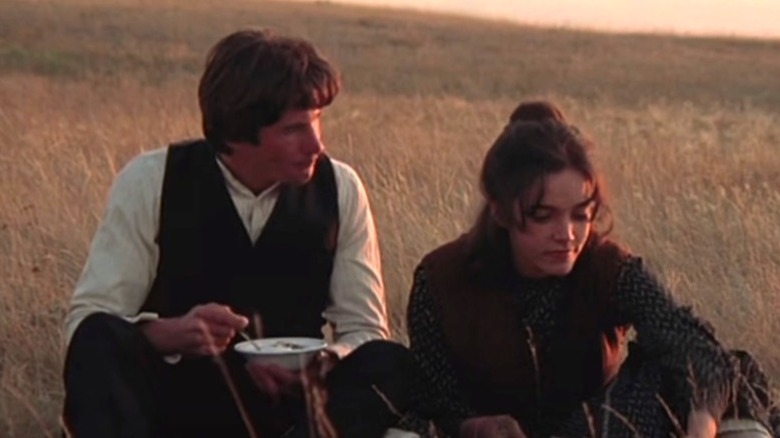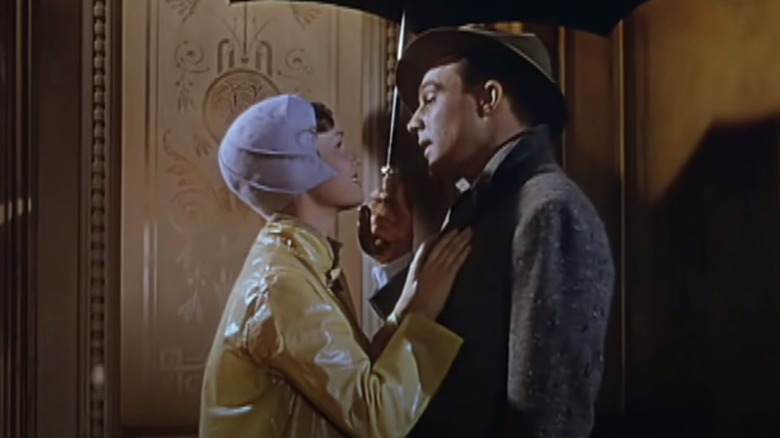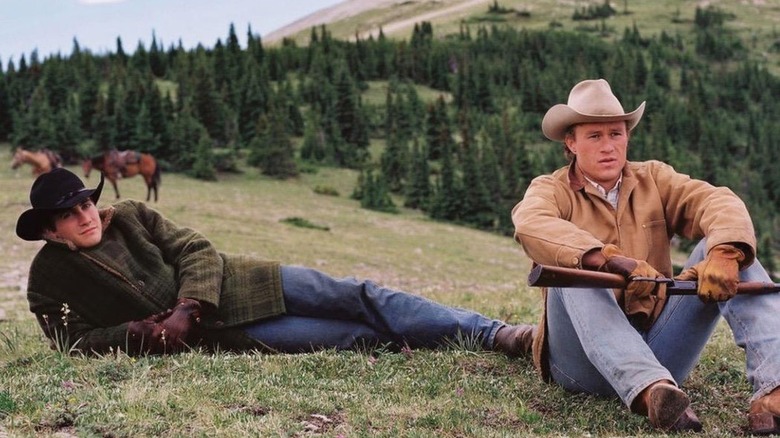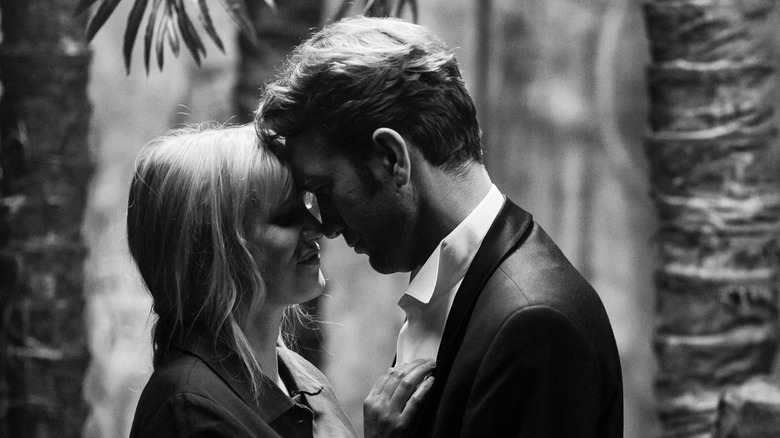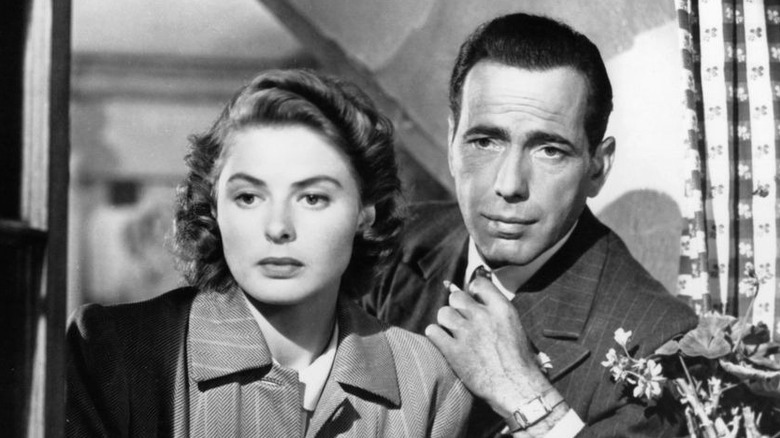The 15 Best Historical Romance Movies Ranked
Audiences can tell whether or not a relationship feels authentic. The chemistry between the stars must feel realistic, and the viewer should believe that a romance is either destined to succeed or doomed to fail.
However, there's more to a great romance movie than the performances. Even if a film has compelling characters, there also has to be a story that forces them to interact. A believable context is necessary. Viewers may accept stories that take place in a reality that is familiar, but many of the greatest romantic movies ever made were inspired by events from history.
History is filled with great stories. It's interesting to look back at a different time period and reflect on what sort of societal changes have occurred. Although viewers may not be familiar with the historical context, they may grow engaged enough to learn more if there's an element of romance that intrigues them. Historical romances can be educational and emotional all at once.
Here is a ranking of the 15 greatest historical romance movies ever made.
15. The Quiet Man
The realism of a specific environment is very important in historical romances. Filmmaker John Ford was a novelty in the industry because he made the authenticity of his films a priority. Ford shot many of his classic Westerns such as "Stagecoach," "The Searchers," "Rio Grande," and "The Man Who Shot Liberty Valance" on practical locations. However, it was completely unprecedented when Ford chose to shoot his 1952 romantic epic "The Quiet Man" on location in a small Irish town. The lush natural imagery and authenticity of the Irish community made the film even more charming.
"The Quiet Man" tells the story of former boxer Sean Thornton (John Wayne) as he moves from the United States to Ireland. Despite winning many matches in America, Thornton was born in Ireland and wants to reconnect with his family legacy. Thornton falls in love with the strong-willed Mary Kate Danaher (Maureen O'Hara) but must elude her temperamental brother Will (Victor McLaglen).
14. Out of Africa
In a romantic film, there needs to be a compelling reason why the central lovers would want to spend time with each other. It cannot simply be a fairy tale or instance of love at first sight. The viewer must invest in the narrative as well. Historical romances can distinguish themselves only if the characters have unique goals. Sydney Pollack's 1985 film "Out of Africa" explores the true story of two American activists in Africa.
The film is based on the 1937 autobiography of Meryl Streep's character Baroness Karen von Blixen. Karen is a member of the Danish upper class, and she feels out of place when she takes up residency at a plantation on the fields of Kenya. However, Karen soon grows to adore the natural environment and cares very deeply for the plight of the African people. Karen shares her passions with English big-game hunter Denys Finch Hatton (Robert Redford).
13. The Last of the Mohicans
James Fenimore Cooper's 1826 novel "The Last of the Mohicans: A Narrative of 1757" is an important historical document. Cooper's romantic epic gave insight into the French-Indian War in colonial America and the relationship between white settlers and indigenous people. While the book is important as a learning tool, Cooper uses many outdated stereotypes. That made a cinematic adaptation challenging, as the film would need to address the fundamental issues with the story's main character. Hollywood has tried many times to modernize the novel, dating back to the eleven-minute 1909 adaptation "Leather Stocking" from director D.W. Griffith.
Michael Mann took on the material with his 1992 adaptation "The Last of the Mohicans" and focused heavily on the action set pieces. While Mann's version is still deeply problematic with its white savior tropes, it does spotlight the indigenous perspective more sensitively than previous iterations. The story focuses on Nathaniel "Hawkeye" Poe (Daniel Day-Lewis), a white man raised by a Mohawk community. Hawkeye and his fellow fur trappers protect a traveling British company as they try to avoid the war. However, things become even more complicated when Hawkeye falls in love with Cora Munro (Madeleine Stowe), a wealthy Colonel's daughter.
12. The New World
Cinema has the power to look back at well-known historical tales from a more nuanced perspective. The story of Pocahontas is told in every primary school history class, but the interpretation of an indigenous woman's "fairy tale romance" with an American settler is deeply problematic. Terrence Malick's gorgeous 2005 film "The New World" looked at this well-known story and took modern insights into consideration.
"The New World" centers on Pocahontas' (Q'orianka Kilcher) heroism when she saves Captain John Smith (Colin Farrell) from execution at the hands of her father, Chief Powhatan (August Schellenberg). Pocahontas is naive, and she's intrigued by a handsome adventurer from another land. However, the realities of their relationship are not ideal. Smith is constantly called away by his responsibilities as the new leader of Jamestown, and he grows ignorant of Pocahontas' depression. It's only in the film's final moments that Pocahontas finds genuine love from the more sensitive John Rolfe (Christian Bale).
11. Atonement
There are few historical events that challenge romance like a war. Ian McEwan's 2001 novel "Atonement" tells a heartbreaking story of a forbidden relationship during World War II, and Joe Wright's 2007 adaptation captures the same emotional gut punch. The gorgeous cinematography by Seamus McGarvey captures both the epic action sequences and quiet moments of reserved longing.
Cecilia Tallis (Keira Knightley) lives with her wealthy family in England at a luxurious palace in 1935. She begins a secret relationship with the housekeeper's son, Robbie Turner (James McAvoy), even though she's expected to marry a man from high society. Cecilia and Robbie share a passionate affair, but Cecilia's younger sister Briony (Saoirse Ronan) is deeply jealous. Briony accidentally reads a graphic love letter that Robbie wrote to Cecilia and walks in on them making love. She assumes that Robbie is assaulting her sister and reports him as a criminal. In order to escape prosecution, Robbie must join the war effort overseas.
10. Revolutionary Road
Some of the best romantic movies aren't uplifting stories of ideal relationships. The 2008 drama "Revolutionary Road" deconstructs the myth of the idealized suburban American couple by showing how restrictive a seemingly perfect marriage can be. The film was directed by the great Sam Mendes, who worked at the British West End Theater for many years before coming to Hollywood. Mendes brought the intimacy of theater to make the film feel more realistic and emotional.
"Revolutionary Road" begins during the late 1940s when idealistic longshoreman Frank Wheeler (Leonardo DiCaprio) meets aspiring actress April (Kate Winslet). April is enchanted by Frank's ambitions of traveling overseas and living a life of great adventure. Frank criticizes suburban couples by saying they've settled on not having extraordinary futures. However, when Frank and April marry, they decide to live in the same suburban environment that they once looked down upon. Their dreams of standing out slowly fade away.
9. Moulin Rouge!
There's no better way to express romance than through song. The 2001 musical "Moulin Rouge!" is set in Paris during the beginning of the 20th century, but it does not feature the French burlesque music that would have been used during the era. Instead, director Baz Luhrmann chose to use a jukebox soundtrack consisting of modern artists like Madonna, Elton John, Queen, and The Police among others. Although there was a risk that the contemporary hits would not fit within the historical setting, "Moulin Rouge!" succeeds as an untraditional and enchanting romantic musical.
Christian (Ewan McGregor), a poor writer, joins the production of a new stage show called "Spectacular Spectacular." The elaborate musical is being performed by an idiosyncratic group of bohemian artists led by Henri de Toulouse-Lautrec (John Leguizamo). As Christian grows involved in the artistic scene, he meets the dancer Satine (Nicole Kidman) and falls in love with her. Satine is caught in an arranged relationship with the Duke (Richard Roxburgh), a cruel bureaucrat, but works on the show to get closer to Christian.
8. Reds
Historical romance films have the power to explore critical issues that are still relevant. Warren Beatty examined the importance of journalism with his 1981 film "Reds," which was inspired by the life of war correspondent and activist John Reed. Reed was among the first American journalists to cover the revolutionary movement in Russia when the communist resistance rose up against the oppression of the Czars. Reed's 1919 novel "Ten Days That Shook the World" spotlighted his observations.
"Reds" tells Reed's story through his relationship with feminist journalist Louise Bryant (Diane Keaton). Bryant is first introduced to Reed's radical beliefs when she listens to one of his lectures. She grows fascinated by his idealism and joins his band of bohemian artists and activists. They become close, but Reed leaves her behind when he travels to St. Louis to witness the 1916 Democratic National Convention. During his absence, the playwright Eugene O'Neill (Jack Nicholson) begins his own pursuit of Bryant.
7. Sense and Sensibility
Jane Austen's 1811 romantic novel "Sense and Sensibility" is one of the greatest works of literature ever written and perhaps the crowning achievement of Austen's career. In "Sense and Sensibility," Austen captures the purity of romance and the affectionate bonds that siblings have for each other. A big-screen adaptation of a novel of such acclaim faces high expectations from fans. Thankfully, Ang Lee's 1995 film brings Austen's words to life in immaculate detail.
"Sense and Sensibility" follows the Dashwood sisters, Elinor (Emma Thompson), Marianne (Kate Winslet), and Margaret (Emilie François), who all live together at a cottage in the English countryside. Although their brother John (Greg) promises their father (Tom Wilkinson) that he will share the family wealth between the four children, John's wife Fanny (Harriet Walter) pushes him to cut his sisters out of their inheritance. They live with their kind relative, Sir John Middleton (Robert Hardy), and watch over each other. Soon, each girl is courted by a different series of lovers.
6. Dangerous Liaisons
Pierre Choderlos de Laclos' classic 1782 French novel "Les Liaisons dangereuses" is a sordid tale of deceit and lust in wealthy high society. The novel exposes the web of secrets underneath the prestige of wealthy pre-Revolution France. The graphic sexual material is shocking, and Laclos' cunning wordplay creates a time capsule of the era. "Les Liaisons dangereuses" became a great historical document for future generations to learn what the French upper class was really like.
"Les Liaisons dangereuses" was adapted into a stage play in 1985 by acclaimed playwright Christopher Hampton. Hampton then adapted his own work into a screenplay for director Stephen Frears. Frears' 1988 film "Dangerous Liaisons" closely follows Laclos' story of a sordid gamble of seduction, and the edgy material is just as entertaining as it always has been.
"Dangerous Liaisons" stars Glenn Close as scorned woman Marquise Isabelle de Merteuil. Merteuil seeks revenge on her ex-husband and decides to sexually humiliate his young fiancee, Cécile de Volanges (Uma Thurman). She approaches another one of her ex-lovers, the scheming Vicomte de Valmont (John Malkovich), and challenges him to seduce Cecile. Valmont declines, as he is already attempting to court Madame de Tourvel (Michelle Pfeiffer), a married woman.
5. Days of Heaven
Terrence Malick's 1978 classic "Days of Heaven" examines how one mistake can create a heartbreaking scenario. Despite the tragic events of its plot, "Days of Heaven" is one of the most beautiful movies ever made.
The film is set in 1916 during the end of the Second Industrial Revolution. A steelworker named Bill (Richard Gere) works a challenging job in a Chicago factory to provide for his girlfriend Abby (Brooke Adams). Bill plans to save money so he can propose. Tragedy strikes when he's blamed for the death of a coworker during a workplace accident. Bill and Abby are forced to go on the run, and they flee to the plains of Texas in order to hide their identities. Bill takes his young sister Linda (Linda Manz) with them.
Fearing that they will be recognized and turned in to the authorities, Bill and Abby pretend to be siblings. A farmer (Sam Shepard) hires them to help manage his fields. Bill learns that the soft-spoken farmer is dying of an unknown disease and will die within a year. He conceives a plan: Abby will marry the farmer in order to attain his wealth and take over his land when he dies. Unfortunately for the couple, the farmer survives and falls in love with Abby.
4. Singin' in the Rain
Sometimes films about history actually become part of history. Released in 1952, "Singin' in the Rain" is one of the most influential musicals of all time and is still renowned as a classic within the genre. Few modern musicals have captured the same infectious joy and stunning achievements in choreography. However, "Singin' in the Rain" isn't a typical song-and-dance romance. It tells a story about the early development of Hollywood musicals.
"Singin' in the Rain" is set in the 1920s during the development of motion picture sound. Warner Brothers has just changed the course of the industry with their 1927 musical "The Jazz Singer," which was the first "talking picture." The other major film studios realize they must also begin developing "talkies," and that puts the acting talent under pressure as they adjust to the new medium. Renowned star Don Lockwood (Gene Kelly) is forced to turn his next feature "The Dueling Cavalier" into a talkie. Don's recurring co-star, the obnoxious Lina Lamont (Jean Hagen), struggles with the transition.
Don has a chance encounter with Kathy Selden (Debbie Reynolds), a chorus girl, and he immediately falls in love with her. In order to save his career (and pursue Kathy at the same time), Don hires Kathy to dub Lina's voice. Don, Kathy, and their best friend Cosmo Brown (Donald O'Connor) must work to save the film.
3. Brokeback Mountain
Romantic films inspired by history have the opportunity to spotlight underrepresented voices whose stories deserve to be told. Films have a checkered history of representing LGBTQ characters, but 2005's "Brokeback Mountain" was a breakthrough moment in cinematic representation. Ang Lee's gorgeous film is filled with both beauty and heartbreak.
The film follows two cowboys, Ennis Del Mar (Heath Ledger) and Jack Twist (Jake Gyllenhaal). The men are both searching for work in 1960s Wyoming. They're hired by foreman Joe Aguirre (Randy Quaid) to herd his sheep on the fields of Brokeback Mountain for several months. The job requires the two men to live and work within close proximity to each other. As they converse over their grueling job, they begin to grow closer and learn about each other's past.
Eventually, Jack breaks the tension and embraces Ennis in his tent one night when the two sleep together to stay warm. Ennis accepts his advances, and the two begin an intimate romance. Societal discrimination prevents them from announcing their relationship, so they keep it a secret. They steal moments of joy by escaping back to Brokeback Mountain.
2. Cold War
Sometimes the best stories come from the personal connection that a filmmaker has with historical events. The great Polish filmmaker Paweł Pawlikowski had an extremely personal motivation for exploring the fragile European politics of the Cold War era of the 1940s through the 1960s. Pawlikowski's parents fell in love during this time, and their relationship inspired the story for his historical romance, "Cold War."
"Cold War" follows acclaimed musical director Wiktor Warski (Tomasz Kot) as he manages ensemble performances under the strict surveillance of the Polish government in the immediate aftermath of World War II. Wiktor is cautious about voicing any of his strong anti-authoritarian beliefs in public and keeps mostly to himself. Wiktor leads the audition process, and he's struck by a young folk singer named Zula (Joanna Kulig). Zula enters the audition room at the last minute and stuns him with her beautiful voice. Wiktor immediately falls deeply in love with her.
Wiktor is under pressure to include fascist propaganda in his performances. His pro-Stalin coworker, Kaczmarek (Borys Szyc), agrees to the terms and recruits Zula to spy on Wiktor, but their romance only grows stronger. Over the next 20 years, Wiktor and Zula keep their relationship under wraps as they avoid the communists.
1. Casablanca
The greatest historical romantic film ever made was conceived as history was unfolding. The United States had just entered World War II in 1941 after the bombing of Pearl Harbor. Warner Brothers was eager to tell a story that would inspire American audiences with heroes that stood up to the rise of the Nazis. Producer Hal B. Wallis discovered the unproduced play "Everybody Comes to Rick's," and a team of scribes adapted the narrative to reflect current events.
"Casablanca" was put into production after the Allied forces began their invasion of North Africa. Director Michael Curtiz of "The Adventures of Robin Hood" fame was tapped to direct the film. "Casablanca" is set during the final days of 1941 and centers on American expatriate Rick Blaine (Humphrey Bogart). Rick owns the nightclub Rick's Café Américain in the Morrocan port city of Casablanca. Once a soldier and gun runner, Rick helps refugees escape to the United States.
Rick's world is rocked when his old lover, Ilsa Lund (Ingrid Bergman), enters his establishment. Rick has not seen Ilsa in years, and she is now married to Czech resistance leader Victor Laszlo (Paul Henreid). Rick has a serious choice to make: He can either help transport Victor to safety and aid the war effort, or he can try to reignite his relationship with the only woman he ever truly loved.
